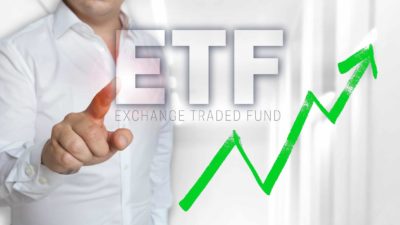The ASX share market, including ASX-listed exchange-traded funds (ETFs), can be an incredible place for wealth creation. If investors invest in the right places, beginner investors can be excited about the possibility of their investments going up.
But where are the right places to invest? There are thousands of potential options for a beginner to choose from.
ASX growth shares can be compelling picks if we choose the right ones at the right time. However, not every compelling business story turns into a successful investment. An exciting business idea needs to translate into revenue, which must then turn into net profit as the company grows larger.
It can take a lot of time for any investor to properly analyse which businesses could perform well.
We don't need to put all of our money in higher-risk, higher-reward ideas like small growth stocks to benefit from the wealth-building capabilities of the share market.
ASX ETFs can do most/all of our investing work because of how they're designed and how they perform.
Diversified baskets of shares
Exchange-traded funds enable investors to invest in a group of businesses in a single transaction rather than buying each individual business separately (which would cost a lot more in brokerage).
Different ASX ETFs invest in different ways, depending on what they're trying to provide investors with access to. Diversification is a pleasing attribute because it reduces the risk of being too exposed to one business or one sector. We can still achieve our long-term investment goals while also taking on less risk, which I think is great for beginner investors.
For example, the Vanguard Australian Shares Index ETF (ASX: VAS) tracks the S&P/ASX 300 Index (ASX: XKO), which is an index of 300 of the largest businesses listed on the ASX.
The Vanguard MSCI Index International Shares ETF (ASX: VGS) is invested in over 1,000 businesses from across the global share market.
Aussies can also invest in funds that aim to give exposure to specific sectors (such as cybersecurity) or provide access to businesses with particular attributes. For example, the VanEck MSCI International Quality ETF (ASX: QUAL) invests in 300 global businesses judged to be the highest quality in the world.
Long-term returns for low fees
In many areas of life, it's common for professionals to be better than regular people at what they do, whether that's sports, photography, cooking, or other categories.
However, in the investment world, we regularly see fund managers underperform the benchmark that the ASX ETFs track. In other words, a beginner investor owning sensible ASX ETFs could lead to outperforming fund managers who have been investing full-time for years.
Of course, some experts do outperform over the longer term, but it's a disappointing number considering how much the funds management industry generally charges in fees. Plenty of fund managers charge 1% or more of the fund value in fees (with many also charging outperformance fees if they do outperform).
Net returns are the most important, so high fees make it harder to deliver good net returns.
Most ASX ETFs have a fraction of the cost of fund managers. For example, the VGS ETF I mentioned above has an annual fee of just 0.18% despite the amount of work that goes into buying and maintaining a portfolio of over 1,000 global shares.
By the way, the fund pays fees out of the investment balance; we don't need to pay that fee ourselves.
Passive and laid-back investing
I love how laid-back we can be by holding ASX ETFs.
We don't need to do anything to manage the ASX ETF once we own our investments and have directed the ETF provider where to pay the passive distribution income. Other assets can take a lot more work. For example, investment properties can require attention when it comes to tenants, repairs and so on.
The underlying businesses within ASX ETFs are doing their best to make more profit and grow in value for beginner investors (and everyone else). We can just sit back and enjoy the long-term returns over the years.
I should also mention that investments won't perform better if we check our portfolios more regularly. The less logging in we do, the better our stress levels will be, and that will hopefully reduce the desire to 'do something'. It's best to leave good investments alone and not tinker.
Remember, occasionally, there can be volatility or even bear markets. But share market declines don't necessitate us doing anything with our portfolios. In fact, when the share market dips, we can find the best prices to invest at and hold for the long term.









